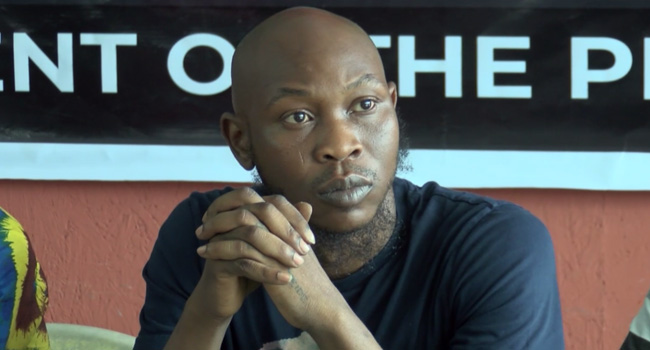Kim Kardashian has been criticized for publicly supporting a death row inmate who was convicted of murder. The Keeping Up With the Kardashians star called for DNA testing to be allowed in the case of Kevin Cooper, a Californian man who was found guilty of the murder of three members of the Ryen family and another child who was sleeping over at the family home in 1983. Throwing her weight behind Cooper, Kim, 37, tweeted a link to a New York Times article earlier in October, which suggested that the 60-year-old man’s trial was biased by racism. The opinion piece also urged California Governor, Jerry Brown, to allow DNA testing which has advanced in the 35 years since his conviction. Alongside the article, Kim wrote: ‘Governor Brown, please add Kevin Cooper to your legacy of smart, fair and thoughtful criminal justice reforms.’
San Bernardino County District Attorney, Mike Ramos, has hit out at Kim’s support for Cooper, whom he confidently believes committed the four murders. Mike told TMZ: ‘It’s time that we start talking and ‘tweeting’ about the victims who were brutally murdered in the sanctity of their home. ‘This latest attempt to free Kevin Cooper is nothing more than a red herring and another slap in the face of the victims and their family members who were forced to suffer a lifetime of pain.’ Cooper has always maintained his innocence and has even suggested he was framed for the horrendous crimes.
Investigating officers also found footprints at the scene which matched Keds given to prison inmates, and a drop of blood alleged to be Cooper’s that was found on a bloody t-shirt near to the Ryen house. Tests showed the drop of blood had a preservative often found in blood samples, which many say is proof the evidence was tampered with.
Investigating officers also found footprints at the scene which matched Keds given to prison inmates, and a drop of blood alleged to be Cooper’s that was found on a bloody t-shirt near to the Ryen house. Tests showed the drop of blood had a preservative often found in blood samples, which many say is proof the evidence was tampered with.

























